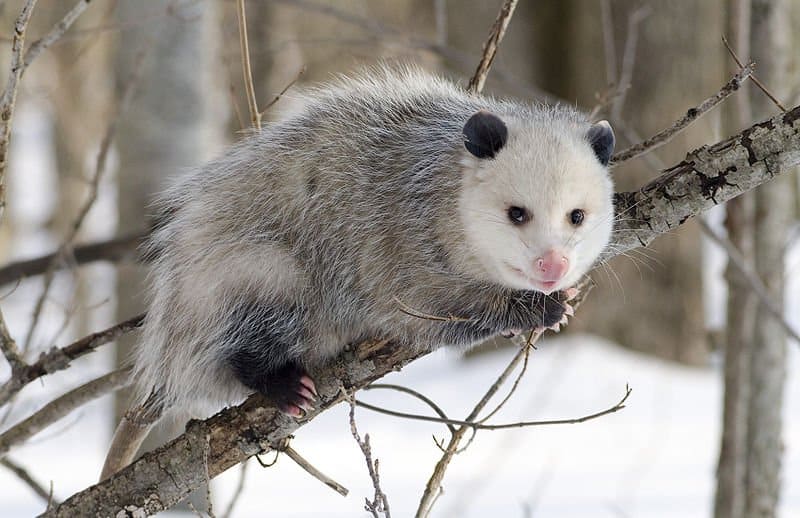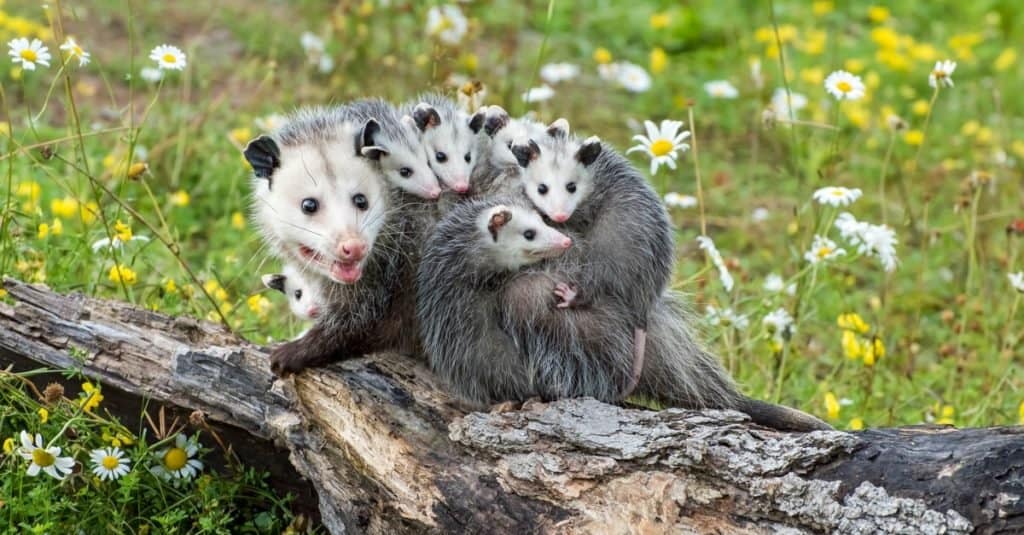Do Possums Eat Rats?
Possums, or Opossums as they’re more properly known, are omnivorous marsupials native to North America.
Possums are voracious munchers who are actually thought to be quite useful by many folks. This is due to the fact that they oftentimes consume pests that are considered much more obnoxious than themselves. The common rat, which has the potential to spread pestilence and disease, among other issues, is one of their common targets.
Here is a brief overview of how the rat figures into a Possum’s diet, as well as a few other nuggets of information regarding these interesting creature’s eating habits.
Facts About Possums

©Cody Pope, CC BY-SA 2.5, via Wikimedia Commons – License
In North America, the term Possum, or Opossum, refers to the Virginia Opossum (Didelphis virginiana), the only marsupial in North America. These prevalent creatures can be found across the Americas. They can be found from the jungles of Central America, all the way up into the plains of Canada.
These animals are often considered to be “living fossils”. This is because their bodies are considered to be highly similar to mammalian creatures that lived in prehistoric eras. However, this isn’t entirely accurate. The earliest Opossum fossils date back to similar periods as many mammals of the current era.
Like most other marsupials, Opossums have a pouch where they keep hold of their young shortly after birth. Opossums typically give birth to about 20 young in any given period. These animals are somewhat distinctive for their very short gestation periods. It only takes 12 to 14 days for an Opossum to give birth to a litter.
One of the most famous characteristics of an Opossum is their tendency to “Play Possum”, or feign death. These animals are so adept at this behavior that they can even replicate the smell of a dying animal.
Possum Dietary Patterns
Possums are classic omnivores and will eat anything that they can get their paws onto. This includes insects, rodents, eggs, birds, small reptiles and amphibians, fruits, plants, and grains. One interesting characteristic of these animals is that they change their diet heavily depending on where they live in the world. Much of it depends on the specific type of habitat that they dwell in.
For example, an Opossum that lives in the tropics might follow a more frugivorous diet. These animals are able to survive consuming many of the plentiful tropical fruits that exist in these regions. On the contrary, an Opossum that lives in an area of fish will eat more fish, and so on.
Possums are also opportunistic scavengers. These animals are the first to jump on an opportunity to chow on the carcass of something that has died.
Opossums themselves are also edible. This has made them a part of regional rural cuisines in the areas where they are common. In certain regions such as Appalachia, there have even been Opossum farms dedicated to rearing the animals. The Opossum is on the menu quite frequently in certain parts of Latin America as well.
Natural Pest Control

©Evelyn D. Harrison/Shutterstock.com
Because Possums an omnivorous, they also eat other small mammals, including rats. Because rats often carry disease on them, this has made the Opossum a quiet hero of those in areas with high rat populations.
Sometimes, this propensity to eat rodents has even landed a few Opossums some official credentials. These animals were occasionally used as pest control in rat-heavy New York City at the turn of the century. Possums will also eat insects that many consider to be pests, such as cockroaches.
However, this program didn’t last long, as many found the Opossums to be just as troublesome as the rats themselves. This is partially due to the Opossum’s powerful musk and propensity to eat trash. Adding to the headache is the animal’s incredibly high birth rate.
Because Possums are scavengers, they also very effectively manage road-kills and other natural waste products. On top of this, Opossums have also been observed to eat ticks. Many species of tick have become incredibly pervasive and prevalent in some areas of the East Coast. One Opossum can eat up to 4000 of these troublesome pests a day.
Adding to their anti-pest credentials, many species of Opossum are immune to the effects of bites from venomous snakes. Possums will hunt and eat these types of snakes as well. This has increased their value in the eyes of those who live in areas where venomous snakes are common. Some even have theorized that highly venomous New World snakes (such as the Fer-de-Lance) may have developed their potent venom in order to defend themselves from predation from Opossums.









